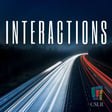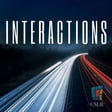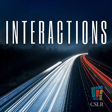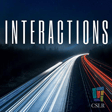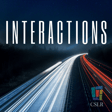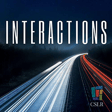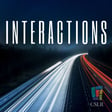Become a Creator today!Start creating today - Share your story with the world!
Start for free
00:00:00
00:00:01

Monday Read: "The Religion of QAnon"
Even though the FBI has labeled QAnon a domestic terrorist threat, for some Christians this conspiracy system has become a hermeneutical lens to interpret the Bible--and the world. According to Annabelle Bichler, QAnon has ridden the line of religiosity from its inception, but the conspiracy has become so enmeshed with evangelical Christianity that it could be considered a religion. In today's episode of Interactions, we discuss why the Supreme Court is hesitant to decide on a strict definition of religion, and what this means for "religions" like QAnon. Is QAnon's misinformation and hate speech entitled to special protections under the first amendment?
Transcript
QAnon: A Challenge to Law and Religion?
00:00:03
Speaker
Hello, and welcome to another episode of Interactions, a podcast about law and religion and how they interact in the world around us. It's Monday, July 5th, and today we're going to be talking about QAnon. By now, you've probably heard of this conspiracy theory and its adherents, some of whom have been linked to the Capitol riots on January 6th, earlier this year.
00:00:31
Speaker
However, what is less well known about QAnon is the unique challenge it poses for law and religion. According to Annabelle Bichler, in white evangelical churches all across the U.S., QAnon beliefs have been gaining traction, with their conspiracies even being used as a hermeneutical lens to interpret the Bible itself.
00:00:56
Speaker
Whether we like it or not, QAnon is starting to look more and more like a religion, in a country where religion does not have a clear constitutional definition. So if QAnon could be considered a religion, does this mean they are entitled to heightened constitutional protections under the First Amendment? If so, what can we do about it?
00:01:22
Speaker
What happens when religion, hateful rhetoric, and misinformation all combine? Stick around to find out. I'm Janet Metzger, and this is QAnon as Religion by Annabelle Bichler.
Origins and Evolution of QAnon
00:01:46
Speaker
On October 28, 2017, a post appeared on 4chan, an anonymous online message board that alleged the imminent arrest of Hillary Clinton and a violent national uprising that would follow. The poster, whose username was simply the letter Q,
00:02:06
Speaker
claimed to be a high-ranking government intelligence officer with access to classified information. Hillary Clinton was not arrested and no subsequent insurrection ensued. Cue, however,
00:02:21
Speaker
remained undeterred. Since October of 2017, there have been continuous queue drops that consist of cryptic warnings about international politics, grievous allegations directed toward the deep state liberal government bureaucracy, and fervent praise of Donald Trump.
00:02:44
Speaker
Since the initial post, Q's dominion has evolved to encompass a wide range of hate groups, including white supremacists, incels, and members of the alt-right. This conspiracy system is what we now know as QAnon, and it has ridden the line of religiosity from its inception.
00:03:07
Speaker
It emulates the blood libel of the Middle Ages and anti-Semitic canard, which falsely accused Jews of murdering Christian children, as well as the satanic panic of the 1980s. QAnon doctrine posits that a cabal of Democrats and celebrities engage in ritual kidnapping, sexual abuse, and cannibalization of innocent children
00:03:35
Speaker
while Donald Trump acts as the sanctifying Savior, battling all of this unholy evil behind the scenes. Q's posts frequently quote the Bible alongside allegations of government criminality and predictions of the apocalypse, with Q citing an ongoing battle between good and evil,
00:03:58
Speaker
or the political battle between conservatives and liberals as being in conjunction with the biblical battle between God and Satan. The FBI has labeled QAnon a potential domestic terrorist threat.
QAnon in Evangelical Churches: A New Belief System?
00:04:14
Speaker
But for many devout Christians, QAnon has become a hermeneutical lens through which to interpret the world.
00:04:24
Speaker
The COVID-19 pandemic prompted many meetings, both secular and religious, to transition to online platforms like Zoom. Established churches have been holding services online, which has allowed QAnon to take full advantage of an already existing model of neo-charismatic home churches.
00:04:46
Speaker
One such church is Omega Kingdom Ministry. It's part of a broad network of independent, QAnon-related congregations called Home Congregations Worldwide. Home Congregations Worldwide has a website where you can find an interactive map
00:05:06
Speaker
that displays the email addresses for home congregation leaders in 43 U.S. states, as well as the U.K., Germany, New Zealand, and Australia. There are worship resources which consist solely of links to QAnon propaganda.
00:05:24
Speaker
And the website mentions something called the Seven Mountains of Societal Influence, a Christian belief system that desires for nations to be governed by Christian biblical law. The ideology blends QAnon's apocalyptic desire to destroy a society controlled by the deep state with an anticipation for the kingdom of God on earth.
00:05:50
Speaker
Home congregations worldwide is obviously troubling, but it isn't the only QAnon congregation. One of the most popular online QAnon evangelists is a former EMT from Arizona named David Hayes. Hayes runs the QAnon evangelical ministry Praying Medic and has over 430,000 followers on Twitter.
00:06:17
Speaker
His video titled Q for Beginners Part 1 was blocked by YouTube, but not before being viewed over one million times. To date, his entire channel has garnered over 33 million views. He has written 14 books available on Amazon that vary from how-to guides on performing miracles and convening with angels, to a series called
00:06:44
Speaker
Q chronicles that unpacks QAnon doctrine. Hayes claims that it was God who spoke to him in a dream and led him to QAnon, and that it was God who compelled him and his wife to quit their jobs and focus on QAnon evangelism full-time.
00:07:04
Speaker
And though the organization does not appear to be recognized by the IRS, in 2018 Hayes registered his QAnon ministry as a Christian religious nonprofit in Washington state.
Legal and Religious Definitions: Does QAnon Qualify?
00:07:19
Speaker
The Supreme Court has never adopted a constitutional definition of religion. Increasing religious pluralism, considered to be a cornerstone of American society, has heavily impacted the Court's varying and often conflicting interpretations of the First Amendment's religion clauses. These interpretations have been both narrow and broad, resulting in a dilemma of definition.
00:07:49
Speaker
A narrow, conventional definition of religion, one that encompasses traditional theistic beliefs and practices, would allow for more constitutional clarity when considering religious cases. But a narrow definition would not necessarily encompass the broad freedom of belief, which the religion clauses are generally understood to protect.
00:08:15
Speaker
On the other hand, a broad definition of religion might better reflect the evolving values and belief systems of contemporary America. However, a broad definition might afford First Amendment protections too indiscriminately.
00:08:32
Speaker
The Supreme Court has largely evaded this kind of definitional decision-making, relying instead on the doctrinal test of nondiscrimination and emphasizing formal equality.
00:08:46
Speaker
the question of how to define religion remains unresolved. A sociological perspective may help inform a discussion on definitions, however, especially as it relates to QAnon. Marc Andre Argentino, in his research at the Global Network on Extremism and Technology, suggests that we view QAnon as a hyper-real religion.
00:09:13
Speaker
A hyperreal religion is a simulacrum of religion created out of or in symbiosis with co-modified popular culture, according to sociologist Adam Possami. Argentino explains that what this means is that technology and the marketplace of ideas have inverted the traditional relationship between the purveyors of religion and the consumers of religion.
00:09:41
Speaker
Thus, we see religious doctrinal authority, that is, those who can contribute to the religion's teaching, being created by popular culture.
00:09:53
Speaker
All religions, including hyperreal ones, are socially constructed and developed over time. QAnon combines popular culture, media, entertainment, American evangelicalism, and conspiracy to create a belief system that has evolved to possess common traits of religion.
00:10:15
Speaker
The issue with QAnon is that it piggybacks on existing evangelical Christianity by utilizing a monotheistic structure and regarding the Bible as a central text. For the sake of argument, let's assume that a broad definition of religion is adopted in consideration of QAnon. In this scenario, that would mean that QAnon adherents could expect and demand First Amendment protections.
00:10:44
Speaker
But if we assume the opposite, that a narrow definition is adopted, what we find might be more concerning. A more narrow definition of religion could implicate heightened constitutional protections if QAnon is seen as closely associated with evangelical Christianity. We'll be right back after the break.
00:11:29
Speaker
QAnon and evangelical Christianity have become closely aligned to the point where QAnon could be considered a religion. And depending on how we define religion, this means that QAnon's misinformation and hate speech could have special constitutional protections. This problem becomes extremely clear in conversations about digital censorship and social media.
00:11:58
Speaker
The U.S. government must strike the proper balance between the regulation of hate speech online and the freedom of religious expression that is paramount to American society.
Hate Speech and Social Media: Legal Battles
00:12:12
Speaker
If this balance can't be found, then ideologies like QAnon will continue to thrive with potentially life-threatening consequences.
00:12:28
Speaker
In January of 2018, Clemson University researcher Darren Linville found frequent references to shooting, hanging, and firing squad on Twitter posts with QAnon hashtags. Reddit, YouTube, Facebook, Instagram, Patreon, and Twitter have all banned QAnon-related content.
00:12:53
Speaker
But this regulation is a recent development, with many critics believing that a vast amount of damage has already been done in terms of spreading violent rhetoric and misinformation about politicians, celebrities, current events, vaccines, and the COVID-19 pandemic.
00:13:14
Speaker
The US law recognizes no legal definition of hate speech, though generally it refers to any form of expression through which someone intends to vilify, humiliate, or incite hatred against a group or class of persons on the basis of a range of qualities, race, religion, skin color, sexual identity, gender identity, ethnicity, disability, or national origin.
00:13:45
Speaker
Currently under First Amendment jurisprudence, hate speech can only be criminalized when it directly incites imminent criminal activity or consists of specific threats of violence targeted against a person or group.
00:14:03
Speaker
There is no uniformity to the censorship of hate speech on social media, nor is there any direction from the courts. In Packingham versus North Carolina, Justice Anthony Kennedy said that cyberspace and social media in particular were among the most important places for the exchange of views and compared the internet to a public forum akin to a public street or park.
00:14:33
Speaker
If cyberspace is to be viewed as a public forum, the question becomes whether the free speech protections of the First Amendment may or even should be applied to the sensorial actions of private social media platforms and whether social media platforms should be solely responsible for establishing guidelines for censoring hate speech.
00:14:58
Speaker
Given the thorny legal issues at play, online speech continues to be a source of contentious debate and continues to have real world consequences.
Real-World Consequences of QAnon Beliefs
00:15:10
Speaker
Violent incidents linked to QAnon date back to December of 2016 when a North Carolina man armed with three loaded guns drove 360 miles to a pizzeria in Washington, D.C.
00:15:25
Speaker
intending to free children allegedly being kept in the pizzeria's basement, part of the child's sex trafficking ring that Hillary Clinton and other Democrats were allegedly facilitating. He found nothing and was sentenced to four years in prison.
00:15:44
Speaker
Pizzagate, as this incident has since been called, was merely the first in a string of real life, potentially life-threatening incidents relating to unsubstantiated QAnon assertions.
00:15:58
Speaker
In 2018, an armed man touting the conspiracy theory was arrested after a standoff at the Hoover Dam, and a QAnon follower was arrested in California with bomb-making materials and plans to attack the capital of Illinois.
00:16:17
Speaker
In April of 2020, police arrested a woman armed with more than a dozen knives after she announced on Facebook that Hillary Clinton and former Vice President Joe Biden, quote, need to be taken out.
00:16:33
Speaker
And in October of 2020, 14 men were arrested and charged for their involvement in a plot to kidnap Michigan Governor Gretchen Whitmer, a Democrat, with the intent to try her for treason. Seven of the 13 were tied to a militia group called the Wolverine Watchmen that supports QAnon and Deep State conspiracy theories.
00:16:58
Speaker
This is not an exhaustive list of QAnon-related instances of violence, but these incidents demonstrate the frenetic power of online hate speech. Real-world violence resulting from online conspiracy theories
00:17:16
Speaker
falls under a phenomenon that political scientists refer to as stochastic terrorism or the public demonization of a group or individual that incites random actors to carry out violent or terrorist acts that are statistically predictable but individually unpredictable.
00:17:39
Speaker
The regulation of hate speech is already fraught with disagreement over constitutional protections. But things become even more controversial when we consider hate speech used by or against religious groups.
00:17:56
Speaker
In his book, Putting Faith in Hate, Richard Moon writes that there are at least two ways in which the religious basis for speech that is alleged to be hateful may complicate the application of hate speech law.
00:18:11
Speaker
The first is the difficulty in determining the individual's meaning or purpose when he or she invokes religious text or tradition to justify his or her opposition to a particular group and its practices. The second complication stems from the judicial and public commitment to state neutrality in religious matters and the underlying conception of religion as cultural identity.
00:18:42
Speaker
Social media platforms like Facebook and Twitter have used AI to attempt to curb the spread of hateful rhetoric and what they deem to be misinformation. But what about posts related to QAnon? What happens when religion, hateful rhetoric, and misinformation all combine?
00:19:05
Speaker
In the U.S., there is a broad socio-political commitment to neutrality when it comes to religious matters.
Balancing Religious Freedom and Regulation
00:19:12
Speaker
Facebook and Twitter, for example, make no mention of religious speech in their community standards and guidelines. This makes sense because religious expression is generally understood to be a personal and protected form of speech.
00:19:29
Speaker
And so, religious expression is situated beyond the jurisdiction of social media user guidelines in determining whether religious beliefs qualify as misinformation.
00:19:43
Speaker
Matters of faith rest largely on beliefs that aren't objectively measurable or provable. This likely allows for QAnon content that is more religious in nature to remain unflagged on social media platforms, while some of the more provocative posts may be flagged as unreliable information but not deleted.
00:20:08
Speaker
Further, if QAnon posts are couched in religious terms, should they be flagged even if they are nonviolent? These are issues that social media platforms will be forced to consider as QAnon continues to develop in the religious realm.
00:20:27
Speaker
These are questions that must also be addressed at the federal level. Social media has created an unprecedented venue for the sharing of information, regardless of credibility. And though these platforms are privately owned, they function as a public forum and should be regulated as such.
00:20:50
Speaker
The U.S. government must strike the proper balance between the regulation of hate speech online and the freedom of religious expression that is paramount to American society. Legislative and regulatory action must be taken that preempts the stochastic terrorism prompted by QAnon-related posts while also allowing the religious expression that the Constitution demands.
00:21:25
Speaker
This has been QAnon as Religion by Annabelle Bichler. You can find the full article on Canopy Forum by following the link in the episode description. Canopy Forum and the Interactions Podcast are distributed by the Center for the Study of Law and Religion at Emory University and produced by Anna Knudsen.
00:21:48
Speaker
I am your host, Janet Metzger. You can follow Canopy Forum on Twitter or Facebook, and you can subscribe to Interactions on your favorite podcast platform. Thank you for listening.
